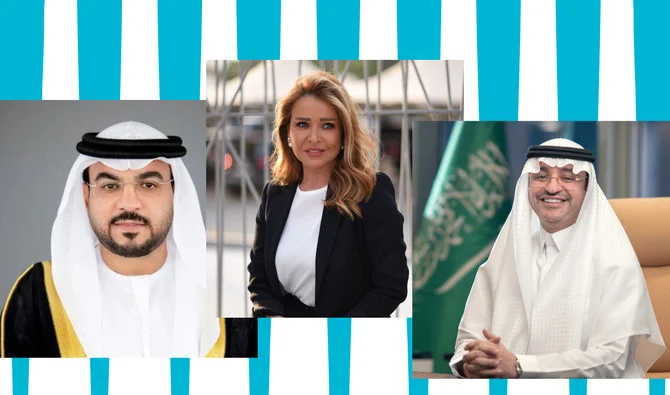DUBAI: A rapidly changing media industry and audiences’ shrinking attention spans are forcing the Arab world to embrace “new schools of thought” in journalism, experts said on Tuesday.
The Arab media industry, run and funded for decades by the state, is witnessing dramatic change as commercial organizations and younger generations are brought in to produce content.
Prominent Arab media figures gathered at the World Government Summit on Tuesday to discuss the issues in a forum titled “Media and Communication.”
Abdullah Al-Maghlouth, deputy minister and spokesperson for the Saudi Ministry of Media, outlined the Saudi Center for International Communication plan to produce shows that feature heartfelt and relatable human stories.
The initiative has proven to be successful, with increased trust between viewers and the government, he said.
Documentaries are also being produced to be stored in the Kingdom’s National Library, covering a wide range of social topics.
Saeed Al-Eter, chairman of the UAE Government Media Office, said that communication campaigns between the state and citizens are needed, with governments now focusing on what he dubbed the “attention economy.”
“Governments, including the GCC’s, now market themselves as private companies do to attract tourism and investment. GCC isn’t what it used to be; we are now internationally acclaimed in several sectors. We have to continue to persevere despite at times receiving negative coverage by Western media,” he said.
Saudi journalist Adbulrahman Abumalih said that his show continues to attract millions of viewers despite episodes of up to four hours.
“While it is true people have shorter attention spans now, I still believe if the content is excellently produced and relatable, viewers will tune in,” he said.
Ammar Taqi, presenter of “The Black Box,” agreed. “People now tend to consume their content from their phones in short clips and headlines. But TV, what is considered “old school,” still has its charm,” he said. “My show has 22 episodes and has had 29 million views.”
Lebanese Tony Khalife, who launched his own station Al-Mashhad TV, said that “new school” media does not work on television.
“What works on social media does not work on television. That is not to undermine what the younger generations are doing, but we must continue to respect our viewership by offering them educated, well-researched content.”
TV presenter Emad Eldin Aldeeb said that “the future is bigger than all of us,” adding: “Holograms are being studied and produced in Japan. We might all become obsolete in this industry if viewers can have their content at a click of a button in animation.”
Despite their differing views on today’s journalism, speakers agreed that artificial intelligence can never replicate a journalist’s integrity and critical thinking, essential attributes in reporting facts in a world full of fake news and meaningless content.

